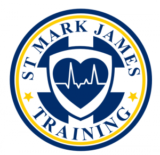Basic Life Support training is one of the advanced cardiopulmonary resuscitation (CPR) programs available at Kelowna First Aid. This program is dubbed CPR Level C training, specifically targeted towards students who are health care providers or work in a medical set-up or environment. Students who complete advanced CPR training with us will receive a training credential for CPR Level C training, valid for one year before it has to be renewed.
What is the CPR Level C training program?
CPR Level C training is a Basic Life Support for Healthcare Providers course, targeted towards students who work in healthcare or are studying in an allied health education program. It’s a short program that runs for an approximate 4.5 hours. The CPR Level C renewal program runs a little shorter, for approximately 4 hours.
CPR Level C or BLS for HCPs is a CPR course that focuses on advanced skills and concepts in cardiopulmonary resuscitation. Students will learn about the following major topics:
- Chain of Survival
- Post-cardiac arrest care
- Choking management (infants, children, adults)
- One-rescuer CPR
- Two-rescuer CPR
- Use of AEDs (automated external defibrillators) and bag valve masks
The CPR Level C training credential is a requirement if you plan on taking the Advanced Cardiac Life Support (ACLS) and Pediatric Advanced Life Support (PALS) programs, also offered at Kelowna First Aid.
How do I receive my training credentials?
Once a student completes the training program with complete attendance, he or she just needs to take the certification exam (which is typically scheduled on a different day) and pass it. We give students a temporary credential when they pass the exam and mail them the permanent credentials in a few days time.
The certification exam has two parts – a written portion and a skills (return demonstration) portion.
Getting started: How does CPR work?
CPR is given to victims of cardiac arrest, which happens when the blood flow to the heart is suddenly cut off. This can happen because of a sudden rise on blood pressure, which causes the blood vessels to narrow, and/or a sudden block in blood flow (usually caused by a thrombus, or deposit of fat and tissue). The end result of these conditions is a heart that isn’t beating at all or isn’t beating adequately to supply the needs of the body.
CPR is made up of three basic skills – compressions, ventilations, and defibrillation. In the absence of an AED, the first two will help stabilize the victim until medical help arrives. Compressions are given first, with two hands interlaced, positioned in the middle of the chest (between the nipples). Press hard and fast, keeping your elbows locked. After 30 compressions, give 2 rescue breaths by tilting the head back, pushing the jaw down, and pinching the nose. Once the victim has stabilized, turn him/her to his/her side, with one arm supporting the head (recovery position).
If you plan on taking the Basic Life Support for Healthcare Providers course, sign up using the form below.
